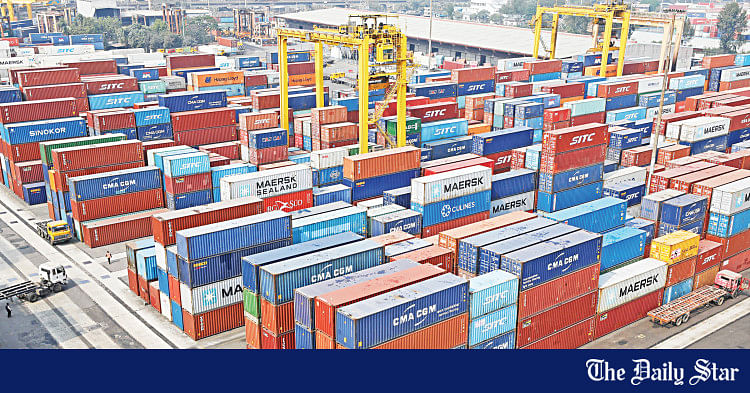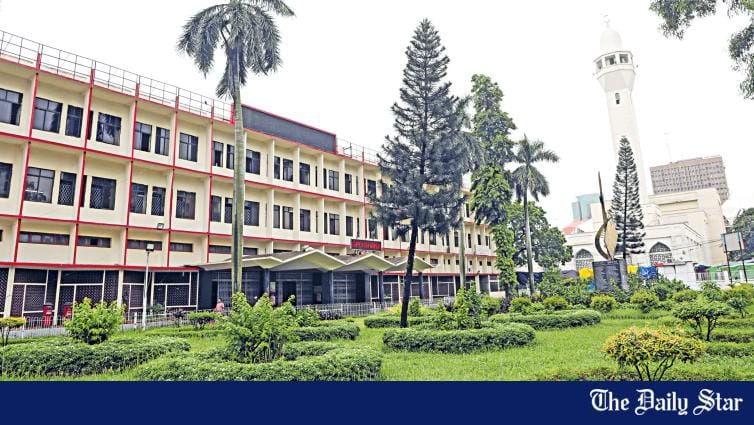Saif
Senior Member
- Joined
- Jan 24, 2024
- Messages
- 16,518
- Likes
- 8,140
- Nation

- Residence

- Axis Group


Rise in remittance: Momentum needs to be maintained
After a period of two years marked by sluggishness, the inflow of remittance has finally rebounded, offering a glimmer of hope for the economy. This is undoubtedly positive development at a time when the economy is under pressure due to high inflation and fast depletion of the foreign exchange rese
Rise in remittance: Momentum needs to be maintained
Published :
Jul 03, 2024 21:38
Updated :
Jul 03, 2024 21:38

After a period of two years marked by sluggishness, the inflow of remittance has finally rebounded, offering a glimmer of hope for the economy. This is undoubtedly positive development at a time when the economy is under pressure due to high inflation and fast depletion of the foreign exchange reserve. According to provisional statistics available with the Bangladesh Bank (BB), Bangladeshi expatriates sent a total of U$$23.92 billion as remittances through official channels in the just-ended fiscal year (FY24), marking an increase of 10.70 per cent over the previous year's modest 2.76 per cent growth. It's worth noting that the inflow of remittance had sharply declined in FY22, by 15 per cent, after a record growth of 36 per cent in FY21.
A big depreciation of the local currency, around 9 per cent, against the US dollar is one of the critical factors that has contributed to the increase in inward remittance flow. However, it needs to be reviewed with caution. In FY23, the local currency depreciated by 11.84 per cent against the greenback when the growth of inward remittance was a modest one. So, a big depreciation of local currency only temporarily incentivises expatriates to send money in bigger volumes home. Depreciation of Taka coupled with increase in cash incentive from 2.5 per cent to 5.0 per cent might have encouraged a greater number of expatriates to send their earnings using formal channels. Besides, a notable rise in the number of outbound workers could be another reason for a modest surge in remittance earnings, although the same is yet to match the growth in the number of migrant workers during the last couple of years. For instance, there was a 15 per cent rise in manpower export in FY23, as per the Bureau of Manpower, Employment & Training (BMET), whereas the annual inflow of remittance registered less than 3 per cent growth in the year.
At least three factors contribute to the weak link between remittance earnings through the formal channel and manpower export. First is the primacy of informal money transfer channels, triggered by exchange-rate-related challenges in the domestic economy, as mentioned by the World Bank's Migration and Development Brief 40 released last month. It pointed out that the parallel market exchange rate premium affects the flow of remittances. So, there was also a diversion of remittances from formal to informal channels in Bangladesh. Second, a large number of outbound workers receive a tiny amount as compensation that may compel them to send a small amount of remittance. Third, the growing cost of remitting money home makes it more difficult for many wage earners abroad. The World Bank report showed that from the United Arab Emirates (UAE) to Bangladesh remittance corridor, the cost increased by 172 per cent from 5 per cent, the sharpest increase in all the corridors in South Asia.
In this situation, the government must put rigorous efforts into supporting the formal banking channel to bring more remittance and support the country's overall balance of payments. The recent surge in remittance inflow is a positive sign amidst a tight reserves situation. The government must do the needful not only to maintain the momentum but also to give it a greater push.
Published :
Jul 03, 2024 21:38
Updated :
Jul 03, 2024 21:38
After a period of two years marked by sluggishness, the inflow of remittance has finally rebounded, offering a glimmer of hope for the economy. This is undoubtedly positive development at a time when the economy is under pressure due to high inflation and fast depletion of the foreign exchange reserve. According to provisional statistics available with the Bangladesh Bank (BB), Bangladeshi expatriates sent a total of U$$23.92 billion as remittances through official channels in the just-ended fiscal year (FY24), marking an increase of 10.70 per cent over the previous year's modest 2.76 per cent growth. It's worth noting that the inflow of remittance had sharply declined in FY22, by 15 per cent, after a record growth of 36 per cent in FY21.
A big depreciation of the local currency, around 9 per cent, against the US dollar is one of the critical factors that has contributed to the increase in inward remittance flow. However, it needs to be reviewed with caution. In FY23, the local currency depreciated by 11.84 per cent against the greenback when the growth of inward remittance was a modest one. So, a big depreciation of local currency only temporarily incentivises expatriates to send money in bigger volumes home. Depreciation of Taka coupled with increase in cash incentive from 2.5 per cent to 5.0 per cent might have encouraged a greater number of expatriates to send their earnings using formal channels. Besides, a notable rise in the number of outbound workers could be another reason for a modest surge in remittance earnings, although the same is yet to match the growth in the number of migrant workers during the last couple of years. For instance, there was a 15 per cent rise in manpower export in FY23, as per the Bureau of Manpower, Employment & Training (BMET), whereas the annual inflow of remittance registered less than 3 per cent growth in the year.
At least three factors contribute to the weak link between remittance earnings through the formal channel and manpower export. First is the primacy of informal money transfer channels, triggered by exchange-rate-related challenges in the domestic economy, as mentioned by the World Bank's Migration and Development Brief 40 released last month. It pointed out that the parallel market exchange rate premium affects the flow of remittances. So, there was also a diversion of remittances from formal to informal channels in Bangladesh. Second, a large number of outbound workers receive a tiny amount as compensation that may compel them to send a small amount of remittance. Third, the growing cost of remitting money home makes it more difficult for many wage earners abroad. The World Bank report showed that from the United Arab Emirates (UAE) to Bangladesh remittance corridor, the cost increased by 172 per cent from 5 per cent, the sharpest increase in all the corridors in South Asia.
In this situation, the government must put rigorous efforts into supporting the formal banking channel to bring more remittance and support the country's overall balance of payments. The recent surge in remittance inflow is a positive sign amidst a tight reserves situation. The government must do the needful not only to maintain the momentum but also to give it a greater push.





































